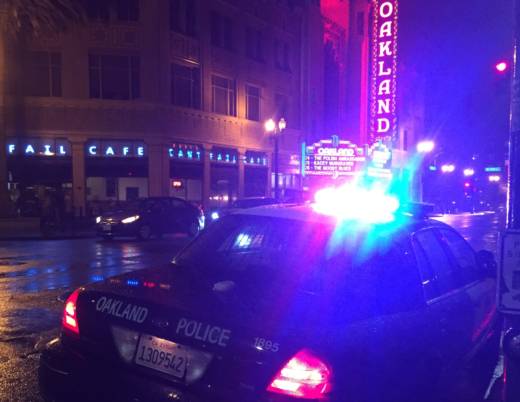Civil rights attorney Jim Chanin represents one side of the "Riders" case that initiated federal court oversight of the OPD 14 years ago. He said Thursday that if the city does not investigate potential misconduct of supervising officers, he'll never agree to end that oversight.
"Considering they’re the highest-ranking people in the department more likely than not, if those people are allowed to get away with whatever misconduct they may have done, then the message to the other officers is they can get away with it, too, and all the reforms we’ve done on discipline will unravel," Chanin said. "If they allow the highest-ranking people to escape any culpability and don’t even identify them, then they haven’t done the reforms that we hoped they would do."
That's significant because, prior to the surfacing of the sexual exploitation case in March 2016, Chanin says the Police Department had made significant progress, and he was close to agreeing to end the nearly decade and a half of federal court oversight.
"I think they’ve made incredible progress in some areas, uses of force are way down, pursuits are way down, complaints are down, and they were on the verge of complying," he said. "However, if they do not identify the people who are most responsible for some of the misconduct and performance of duty violations in this particular period of time, I can no longer see any time when I’d be willing to stand up with them and say they’ve complied."
Kirkpatrick said after a hearing on the case Monday that her promotions of John Lois to assistant chief, Roland Holmgren to captain and Capt. Kirk Coleman to head of internal affairs were approved by the court-appointed federal monitor, who will also oversee the city's reporting on how it will address problems exposed by the sexual exploitation case, according to Wednesday's order. She said she was prevented by "employment law" from examining whether any of her command staff were responsible for botching the department's initial response.
Not quite, said Chanin.
A one-year statute of limitations for police misconduct may prevent the chief from pursuing discipline, Chanin said, "but nothing whatsoever prevents her from identifying those who did this. Nothing in employment law, nothing at all except the politics of the Police Department. And if she fails to do this, it’s her own weakness."
An Oakland Police Department spokeswoman wrote that the Swanson-Barron report, the city's written response and the court's most recent order "define and lay a clear direction of tasks to be accomplished within prescribed timelines," in response to inquiries about whether the department planned to investigate the conduct of supervising officers. None of those documents appear to require the further investigation Chanin called for.
Oakland's report to the federal court is due on Sept. 15, and all parties in the long-running case are scheduled for a hearing before Judge William H. Orrick on Oct. 2.
Judge Thelton Henderson, who has presided over the case since its beginning, is retiring in August.
"Defendants [Oakland officials] continue to say many of the right things," Henderson wrote in what is likely his last order in the case. "However, as Plaintiffs' counsel correctly observed, and as the Court itself indicated, good intentions are not enough. Now, more than ever, is the time for action and not just words. The Court would ordinarily reiterate that it remains fully prepared to use its powers to the extent necessary to ensure that Defendants finally achieve sustainable compliance, but the court must instead leave this case to another judge."
Read the full order below.
